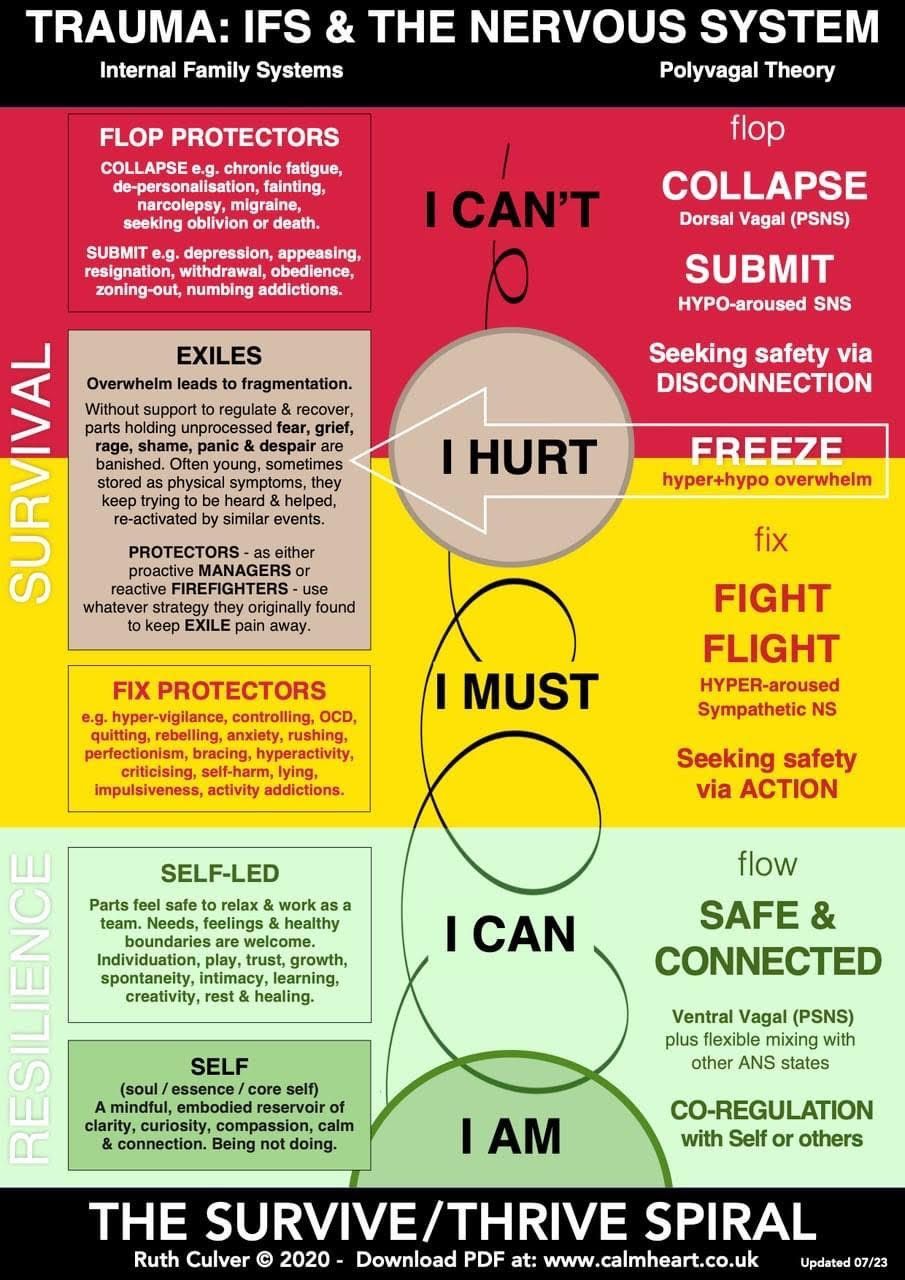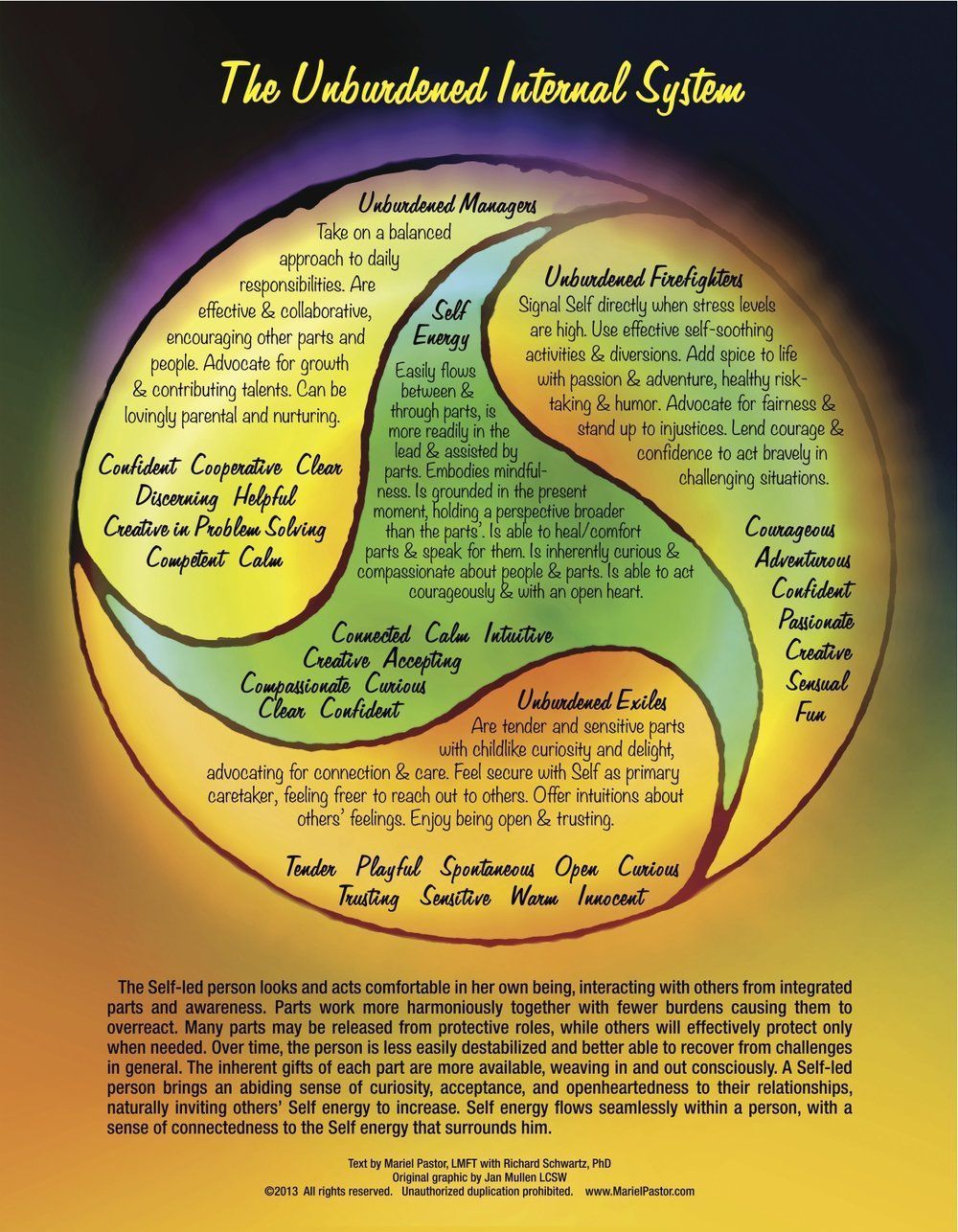
Internal Family Systems Therapy (IFS) is a model of psychotherapy that theorizes that every human individual is composed of discrete “parts” or sub-personalities, as well as a core “self”.
IFS therapy, founded by Dr. Richard Schwartz in the 1980s and supported now by decades of research, seeks to identify and connect with an individual’s parts, to acknowledge the purpose of those parts in helping the overall system function, and to heal parts that have developed maladaptive coping behaviors or emotions.
IFS is commonly used to help heal individuals with trauma, either as a standalone therapy model or combined with other trauma-informed modalities, such as EMDR (Eye Movement Desensitization and Reprocessing). Parts and their Roles
There are 3 primary roles that our different parts can fulfill in the internal family system:
- Self – our core or true self, essence, spirit
- Protectors – parts who try to protect vulnerable or traumatized parts of us using proactive or reactive strategies
- Exiles – the burdened, traumatized, or vulnerable parts of us who frequently carry negative core beliefs and insecurities
Internal Family Systems Therapy
As an Integrative Psychotherapist, I utilize a variety of tools to help clients heal from whatever it is they are dealing with. Everybody connects to different types of therapeutic methods, which is why I use a wide variety of approaches.
One thing that I find incredibly effective is helping clients understand themselves better by exploring their inner world (or inner family) together. This is a natural and gentle way to relieve pent up heavy emotions.
As you might know, our minds and bodies store memories, and experiences. Those memories, the good and the bad, often get trapped in our bodies. Though all emotions are meant to help us survive and face our realities, sometimes, emotions such as anxiety, panic, fear, sadness and other intense emotions that aren’t expressed in a healthy way can end up causing us discomfort, and pain. They just sit there, waiting to explode. When this happens, we might have less clarity, less compassion, less patience, and less calm in facing our daily life. However, we need to be able to be compassionate, calm, patient and clear to help us get through life successfully. Those traits we call "core qualities of self." They are healthy core qualities. Intense emotions can cloud our ability to access those "core qualities" that we need to help us get through tough times, compromise our immune systems and rob us of our ability to focus and be present in critical moments in our life.
One of the ways to help work through the stuckness is by getting in touch with your "parts". Parts work and Internal Family Systems therapy enhance our ability to access and process our stored up emotions so we can heal from our past wounds and get back in touch with our "core qualities of self".
This method of therapy suggests that we all have different “parts” inside ourselves that represent different core emotions, experiences, tendencies, tools and reactions. Each part has helped shape our personalities throughout our lives. The "parts" interact with each other sort of like a family would or a team, but sometimes, different "parts" have different agendas, or, don’t get along with each other.
“Successful treatment of childhood trauma or Complex PTSD requires the ability to work with parts and ego states. Within parts work therapy, you achieve trauma resolution by recognizing disowned parts and giving these parts a voice. The goal is to help you develop an embodied sense of self that can compassionately hold your emotions, vulnerable sensations, and young parts of self.”
–Dr. Arielle Schwartz
